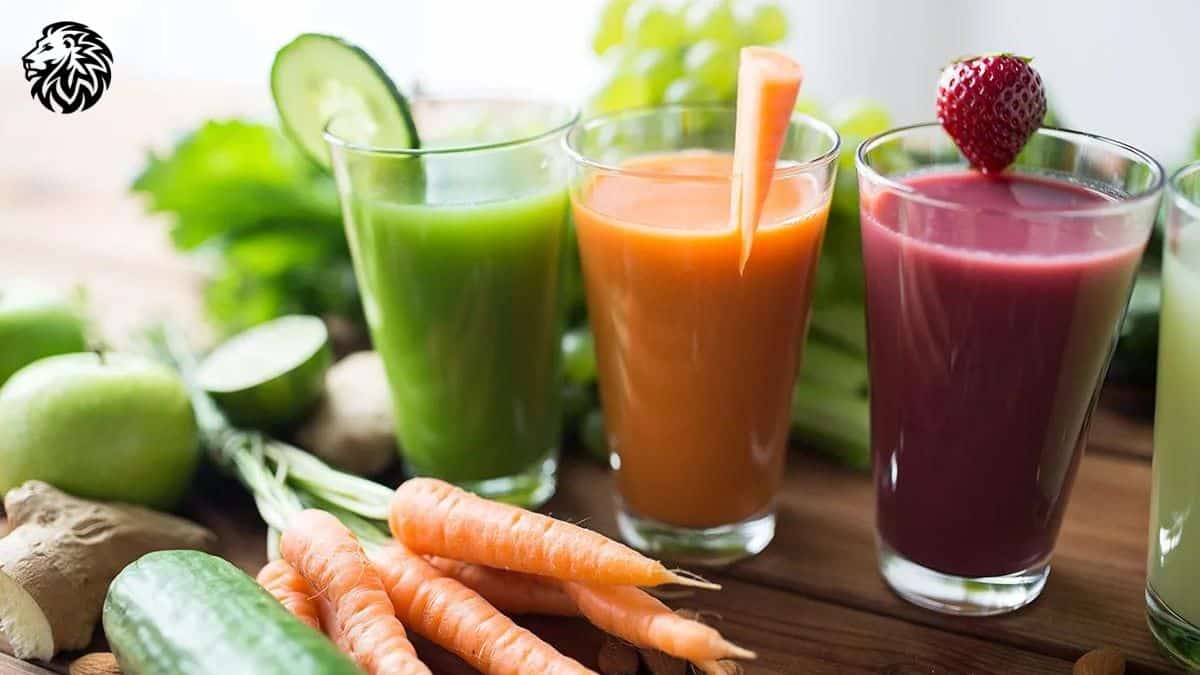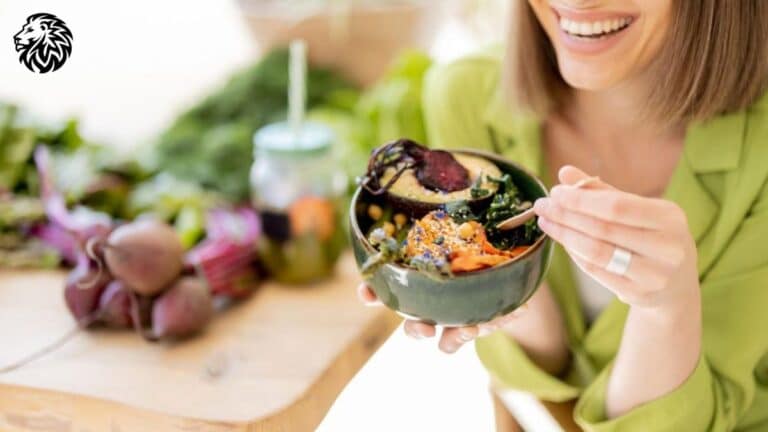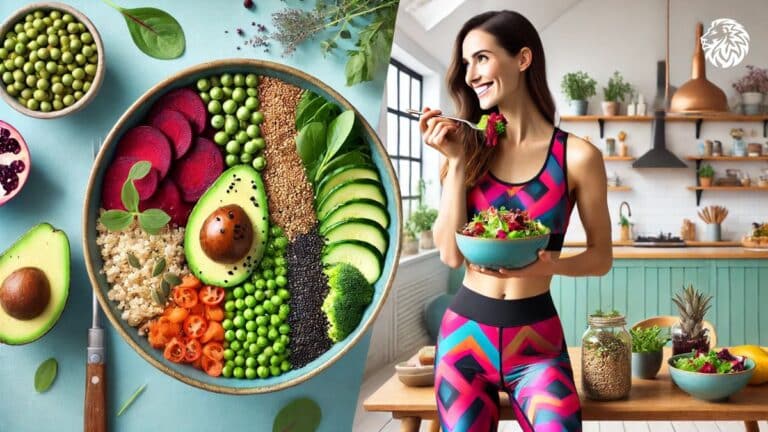It’s critical to consider both what we eat and drink when adopting a plant-based diet and lifestyle. Many people might not be aware that some beverages contain ingredients from animals or that their manufacturing processes are not environmentally friendly. We’ll examine the various options available to quench your thirst while following a plant-based diet in this comprehensive guide. We’ll offer helpful advice and insights to empower you to make wise decisions that are good for both the environment and your health.
Water: The Ultimate Hydration Source
Tap water: The most eco-friendly choice
Are you aware that tap water is often the most environmentally responsible option for quenching your thirst? By turning on the faucet and filling up a reusable bottle, you can significantly reduce the production of plastic waste and conserve valuable resources. Tap water also boasts a lower carbon footprint, as it eliminates the need for transportation and packaging. While the quality of tap water varies by location, it generally undergoes rigorous testing and treatment to meet safety standards. Embrace tap water as your go-to choice for hydration, and witness the eco-friendly benefits firsthand.
Filtered water: A cleaner, healthier option
Sometimes, tap water may contain impurities or undesirable tastes, leading you to seek alternatives. That’s where filtered water comes into play. By using a water filtration system or pitcher, you can effectively remove contaminants, such as chlorine, lead, and bacteria, while retaining essential minerals. The result? Crystal-clear, great-tasting water that supports your well-being. Additionally, filtering water at home remains an environmentally conscious choice, as it reduces plastic waste and conserves resources. Make the switch to filtered water, and elevate your hydration experience without compromising the planet’s health.
Bottled water: Opt for glass bottles or reusable containers
In certain situations, bottled water may be the only viable option for hydration. However, it’s crucial to make mindful choices when selecting bottled water to minimize the environmental impact. Firstly, prioritize glass bottles, which are recyclable and free of harmful chemicals often found in plastic containers. If glass bottles are not available, choose brands that use recycled or biodegradable materials for their packaging. Better yet, invest in a reusable water bottle made from stainless steel or BPA-free plastic, and fill it up whenever you have access to clean, safe water. By opting for eco-friendly bottled water alternatives, you can stay hydrated while championing sustainability.
Plant-Based Milks: Dairy-Free and Delicious
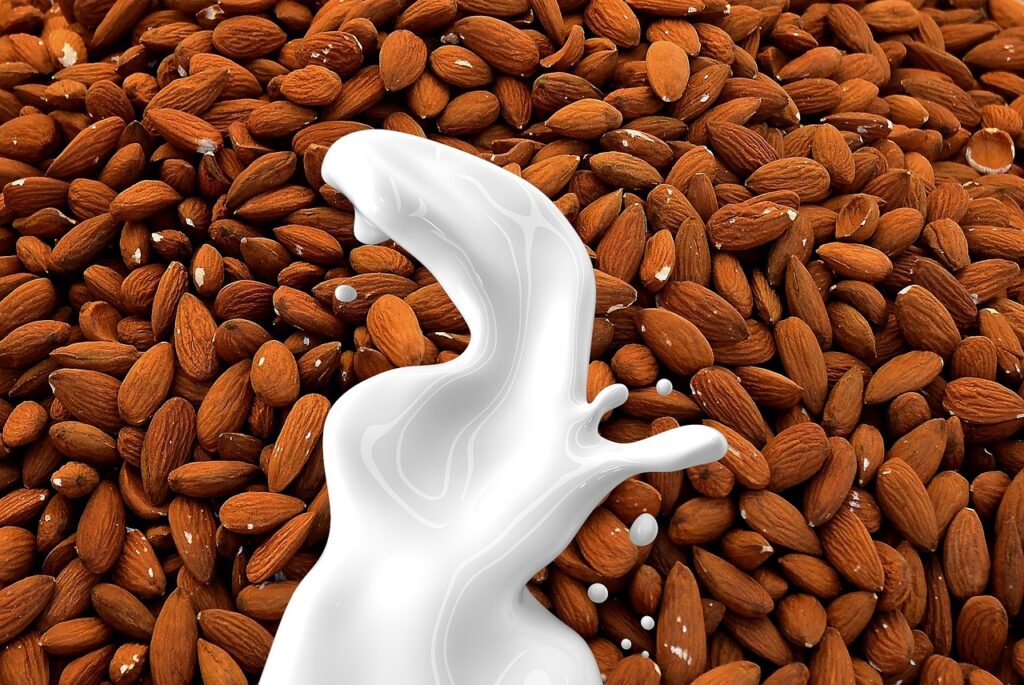
Almond milk: A low-calorie, nutrient-rich choice
Have you ever thought about switching to almond milk from regular dairy milk as a delicious, low-calorie option? This delicious plant-based beverage contains water, finely ground almonds, and important nutrients like calcium, vitamin E, and healthy fats. Almond milk’s smooth, subtle taste makes it a versatile addition to your morning cereal, coffee, or even in baking recipes. Make the switch to almond milk and enjoy its delightful flavor and nutritional benefits without the extra calories.
Soy milk: High in protein and versatile
Looking for a protein-packed dairy-free milk option? Soy milk is the answer. Derived from whole soybeans or soy protein isolate, soy milk contains a complete amino acid profile, making it an excellent protein source for plant-based diets. Its creamy texture and mild flavor allow for easy integration into various dishes, from savory sauces to sweet smoothies. Choose soy milk to enhance your plant-based meals with a protein boost and a touch of creaminess.
Oat milk: Creamy and sustainable
Craving a luscious, sustainable milk alternative? Oat milk might just be your perfect match. Made from soaked and blended oats, this creamy beverage has gained popularity for its delightful taste and eco-friendly production. Oat milk requires less water and produces fewer greenhouse gas emissions than many other plant-based milks, making it a responsible choice for environmentally conscious consumers. Relish the smooth, rich flavor of oat milk in your coffee, cereal, or baked goods, all while supporting a sustainable future.
Coconut milk: A tropical, rich alternative
If you’re yearning for a taste of the tropics in your plant-based milk, coconut milk is your go-to option. Extracted from the grated flesh of mature coconuts, coconut milk offers a rich, silky texture and a naturally sweet flavor. Its high-fat content makes it an ideal choice for creamy curries, soups, or even dairy-free ice cream. Embrace the tropical taste of coconut milk and add a hint of indulgence to your plant-based dishes.
Rice milk: Light, sweet, and allergen-friendly
In search of a plant-based milk that is gentle on the palate and allergy-friendly? Rice milk may be your solution. Crafted from milled rice and water, rice milk has a light, sweet taste and a thinner consistency compared to other plant-based milks. Its hypoallergenic properties make it suitable for those with allergies or intolerances to nuts, soy, or gluten. Incorporate rice milk into your beverages, cereals, or desserts for a delicate, allergen-free alternative that won’t disappoint.
Herbal Teas: A World of Flavor and Health Benefits

Green tea: Antioxidant powerhouse
Seeking a beverage that’s not only refreshing but also loaded with antioxidants? Look no further than green tea. Packed with health-promoting compounds called catechins, green tea is renowned for its ability to fight free radicals, reduce inflammation, and even aid in weight loss. Savor a warm cup of this earthy, aromatic tea to reap its numerous benefits while delighting your taste buds.
Chamomile tea: Calming and soothing
In need of a soothing, calming drink to unwind after a long day? Chamomile tea is your answer. Made from the dried flowers of the chamomile plant, this herbal tea has been cherished for centuries for its gentle, relaxing properties. Its subtle, floral flavor can help ease anxiety, promote better sleep, and alleviate minor digestive discomfort. Embrace the calming essence of chamomile tea and let it become your go-to drink for relaxation.
Peppermint tea: Aids digestion and relieves stress
Searching for a revitalizing tea that supports digestion and alleviates stress? Peppermint tea is an ideal choice. Derived from the fragrant leaves of the peppermint plant, this herbal tea is celebrated for its cool, invigorating flavor and numerous health benefits. Peppermint tea can help soothe digestive issues, alleviate tension headaches, and even enhance mental focus. Indulge in a cup of this refreshing, minty tea and experience its therapeutic properties firsthand.
Rooibos tea: A caffeine-free, antioxidant-rich option
Are you on the hunt for a caffeine-free tea that still boasts an impressive antioxidant profile? Rooibos tea, made from the leaves of the South African red bush, is a perfect option. This naturally caffeine-free, ruby-hued tea is packed with antioxidants, which can help protect cells from damage and promote overall health. With its mild, sweet, and slightly nutty flavor, rooibos tea is a delightful choice for any time of day.
Matcha tea: Boosts metabolism and brain function
Interested in a tea that enhances both metabolism and cognitive function? Matcha tea is the answer. This vibrant green tea powder, made from finely ground green tea leaves, is renowned for its numerous health benefits. Rich in antioxidants and L-theanine, matcha tea can help increase metabolism, improve focus, and even elevate mood. Enjoy the smooth, umami flavor of matcha tea in a traditional preparation or incorporate it into lattes and smoothies for a unique, health-boosting twist.
Fresh Fruit and Vegetable Juices: Nutrient-Dense Liquid Gold
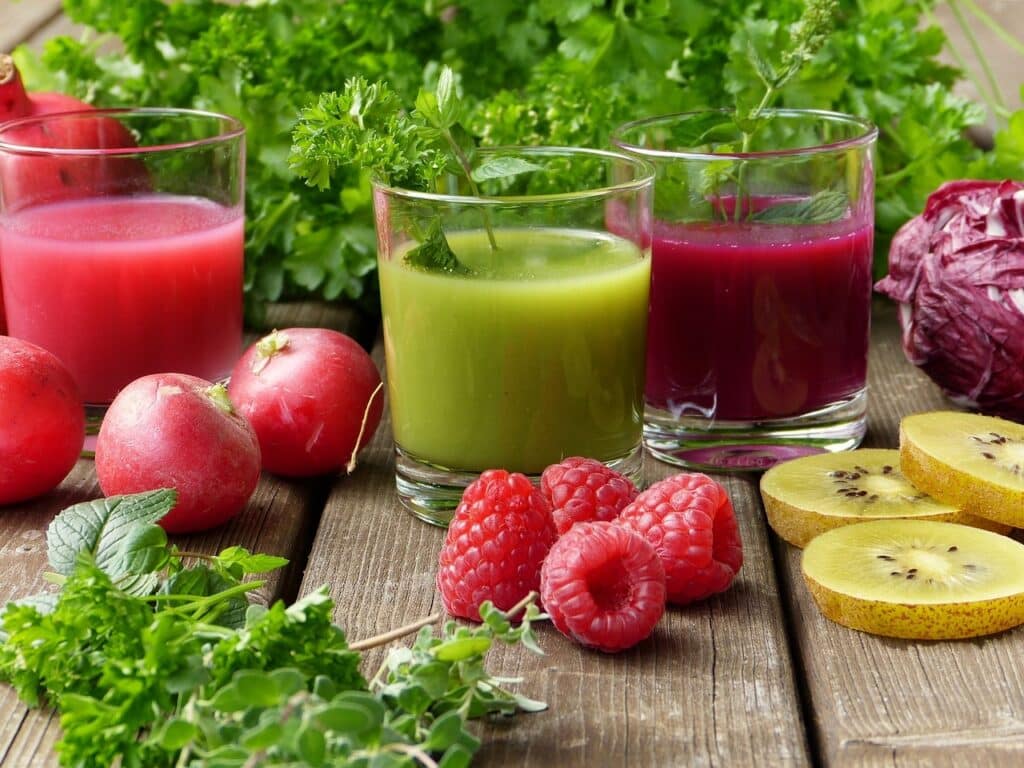
Cold-pressed juices: Maximum nutrition and flavor
In search of a nutrient-dense, flavorsome juice that retains the natural goodness of fruits and vegetables? Cold-pressed juices are the answer. By using a hydraulic press to extract juice from fresh produce, cold-pressed juices maintain maximum nutrient content, vibrant colors, and rich flavors. Treat your taste buds to a revitalizing, healthful experience by choosing cold-pressed juices, and feel the nourishing benefits with every sip.
Smoothies: Combine fruits, vegetables, and plant-based milks for a filling drink
Craving a satisfying, nutrient-packed beverage that doubles as a meal? Smoothies offer a delightful solution. You can make a thick, creamy concoction that is scrumptious and nourishing by combining a variety of fruits, vegetables, and plant-based milks. Experiment with different ingredient combinations to find your perfect smoothie blend, and enjoy a filling, wholesome drink that fuels your body and satisfies your taste buds.
Green juices: Detoxify and energize
Do you want to detox your body and increase your energy? A reviving and healthy alternative are green juices that are full of leafy greens like spinach, kale, and collard greens. Green juices can aid in body cleansing, better digestion, and increased energy because they are high in chlorophyll, vitamins, and minerals. To make a revitalizing, nutrient-rich beverage that promotes wellbeing, combine leafy greens with other fruits and vegetables, such as apples or cucumbers.
Homemade juice blends: Customize your nutrients and taste
Eager to craft your own nutrient-dense, delectable juice blends? Homemade juicing allows you to take control of both the taste and nutritional content of your beverages. By selecting your favorite fruits and vegetables, you can create personalized juice concoctions tailored to your preferences and dietary needs. Experiment with unique combinations, and discover the endless possibilities of homemade juice blends. With every creation, you’ll enjoy the delicious taste and health benefits of fresh, nutrient-packed ingredients.
Coffee and Plant-Based Creamers: Morning Fuel, Reinvented

Organic, fair-trade coffee: A more sustainable choice
Are you seeking a sustainable option for your morning caffeine fix? Organic, fair-trade coffee is the answer. By choosing coffee beans that are grown without harmful pesticides and that support fair wages and working conditions for farmers, you’re making a responsible choice for both the environment and the people who produce your coffee. Savor the rich, aromatic flavors of organic, fair-trade coffee, and start your day with a clear conscience.
Plant-based creamers: Explore the variety of flavors and textures
Ready to elevate your coffee experience with dairy-free creamers? Plant-based creamers offer a delightful array of flavors and textures to suit every palate. From the creamy richness of almond and soy-based creamers to the silky smoothness of oat and coconut options, you can reinvent your morning coffee without compromising on taste. Experiment with different plant-based creamers and indulge in the delicious, cruelty-free possibilities they bring to your daily brew.
Opt for natural sweeteners: Stevia, agave, or maple syrup
Looking to sweeten your coffee without artificial additives? Natural sweeteners like stevia, agave, or maple syrup are excellent alternatives. These plant-derived sweeteners can add a hint of sweetness to your morning cup without the negative health effects often associated with refined sugars. Try swapping your usual sugar for one of these natural options and relish in the guilt-free pleasure they provide while savoring your favorite coffee.
Conclusion
A plant-based diet offers an abundance of beverage options that cater to various tastes and nutritional needs. From pure, refreshing water to creamy plant-based milks, there is a drink for every occasion. By making informed choices about the beverages you consume, you can ensure that your plant-based lifestyle is not only healthy but also eco-friendly and sustainable.
FAQs
What are some hidden animal-derived ingredients to look out for in drinks?
Some common hidden ingredients include gelatin, casein, isinglass, and cochineal.
Can I still enjoy alcoholic beverages on a plant-based diet?
Yes, many alcoholic drinks are plant-based. However, some may contain animal-derived ingredients or use non-vegan production methods. Research and opt for vegan-friendly options.
Are sports drinks suitable for a plant-based diet?
Some sports drinks may contain animal-derived ingredients. Read labels carefully and choose plant-based alternatives when possible.
Is honey an acceptable sweetener for plant-based beverages?
Honey is an animal byproduct and not considered plant-based. Opt for natural sweeteners like agave, maple syrup, or stevia instead.
Can I make my plant-based milk at home?
Absolutely! Making plant-based milk at home is easy, cost-effective, and allows you to control the ingredients. Popular options include almond, oat, and cashew milk.
